Xavier, who was a well-known figure on the streets of Portimão, is one of the highlights of the mural that, for about two weeks, has been decorating the exterior walls of the GRATO headquarters, a pavilion located on Avenida Guanaré, on the riverside of Portimão.
The author of the mural is the writer Helder José, or rather Bamby, a Portimonense who is a well-known figure in the world of street art in the Algarve. "It took me about a week to make this mural, despite having worked three to four hours a day," the artist told Sul Informação. Your job, which can be known in more detail here, it was an offer to GRATO.
Joaquim Magalhães Alves, president of GRATO, explained that the purpose of the mural is to «give visibility and make installations more pleasant», but also «to show the difference and the different areas of our work».
Created 26 years ago, GRATO—Support Group for Drug Addicts is a Private Social Solidarity Institution headquartered in Portimão. When it was founded, its main objective was to provide services to the community in the area of drug addiction, but today its work goes far beyond that.
"It supports people who are directly or indirectly related to the problem of addiction to psychoactive substances, or others, and provides services to the disadvantaged and socially excluded community", explains the IPSS on your website.
To see how comprehensive GRATO's current work is, suffice it to say that, in addition to its headquarters, which houses offices and administrative services, located in a former post office pavilion on Avenida Guanaré, the mission of this IPSS also involves the food bank located in Avenida 25 de Abril, by the Temporary Shelter for Homeless Women, victims of domestic violence or other situations of vulnerability, in Pedra Mourinha, by the Social Reintegration Apartment in Quinta do Amparo, for people from therapeutic communities or who leave the hospital. prison establishments, so that they are not left on the street and later include them in social life, by the Nursery Jardim do Sol, for 40 children, built from scratch in Cruz da Parteira, by CLDS (support in training for children and parents , making a bridge with schools, support to employment) at the foot of the station, or even by direct intervention in the street.
In all, there is a team of 39 people, with specializations in different areas, which ensures all these social responses. In certain projects, GRATO also counts on the help of volunteers, some of them people who have already been supported by the institution, in difficult phases of their lives.
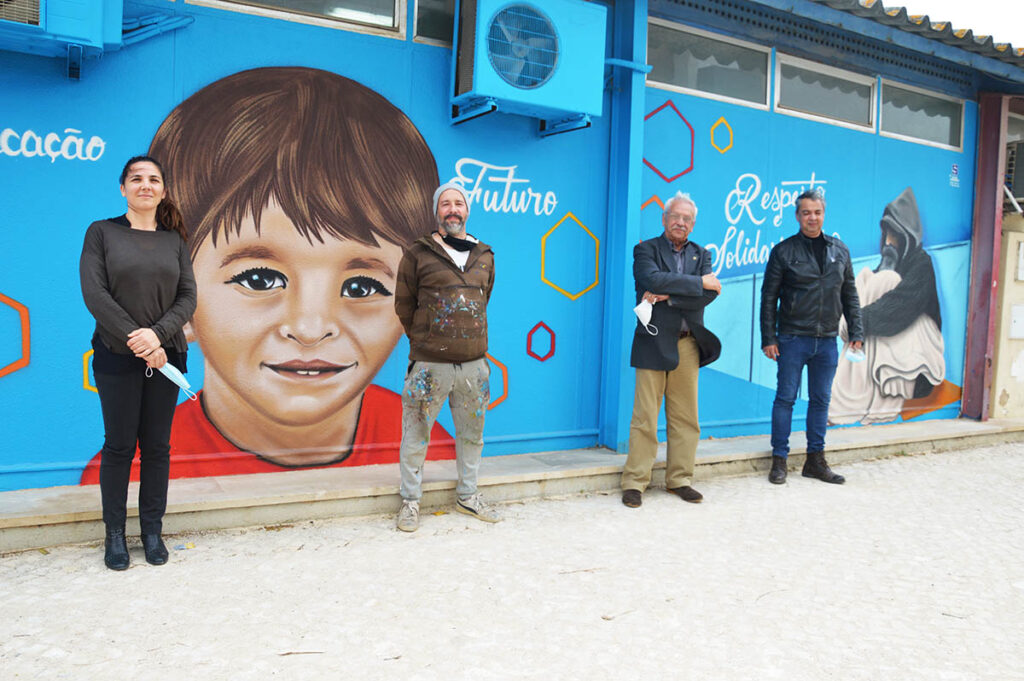
As has happened in other regions of the Algarve, the pandemic in Portimão has also increased the number of people in need. "There are whole families coming here to get food and we have a waiting list at our food bank," adds the institution's president. This is because, stresses Joaquim Magalhães, «more and more new poor people are appearing. When the bank loan defaults end, it will be even more complicated».
Luís Norte, a psychologist who is the coordinator of GRATO, speaks, for example, of the 150 meals a day that are given to the needy population and the homeless. «We were giving 24 meals a day, now there are about 80 a day. We give breakfast and lunch. But on the weekend, we can give 150 to 200 meals a day. They are meals for families and for the elderly who have a very meager retirement, with disabilities, whose budget is spent almost entirely on medicines».
GRATO's food bank supports more than 240 people. “It's mostly families with children and the elderly, who have a place to cook food, but can't afford it,” adds Luís Norte.
“The pandemic changed our paths. We went to get food from the schools, the food that was made there but then was not consumed, but that ended, because the schools closed. We used to organize fund-raising events, such as sardines or parties, but that also stopped», laments Joaquim Magalhães.
«90% of what we received and gave came from schools, so we had to create new partnerships and new sponsorships», explains Luís Norte.
Now, what counts are donations from companies such as Continente and Auchan hypermarkets (which donate frozen foods at the end of the term, for example), «the patisseries that donate bread and cakes to us daily, restaurants like The kitchen or Algarve Icon, both here in Portimão».
on the day the Sul Informação was at the headquarters photographing the mural, GRATO was contacted to fetch all the fresh and frozen items from a restaurant that was operating under a regime of takeaways, but had to close due to a case of Covid-19 in his team. “We are living like this, but it is becoming more and more difficult, because we also have more and more requests for support from people”, stresses Joaquim Magalhães.
Despite the difficulties, those responsible for GRATO do not give up their arms and even have new projects, such as the acquisition of a refrigerated van to support the raising of food.
Anyone who wants to support GRATO you can do it with donations (in cash or goods, namely food, hygiene products, clothes, diapers, furniture), with work, becoming a volunteer, or even donating 0,5% of the IRS to the institution's projects.
Photos: Elisabete Rodrigues | Sul Informação
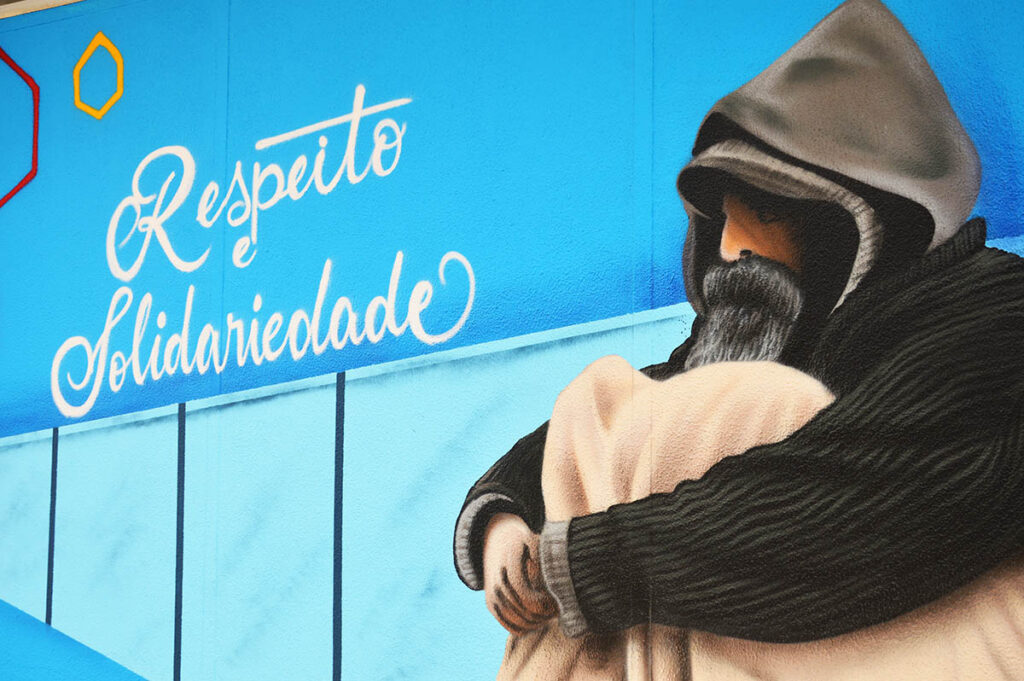
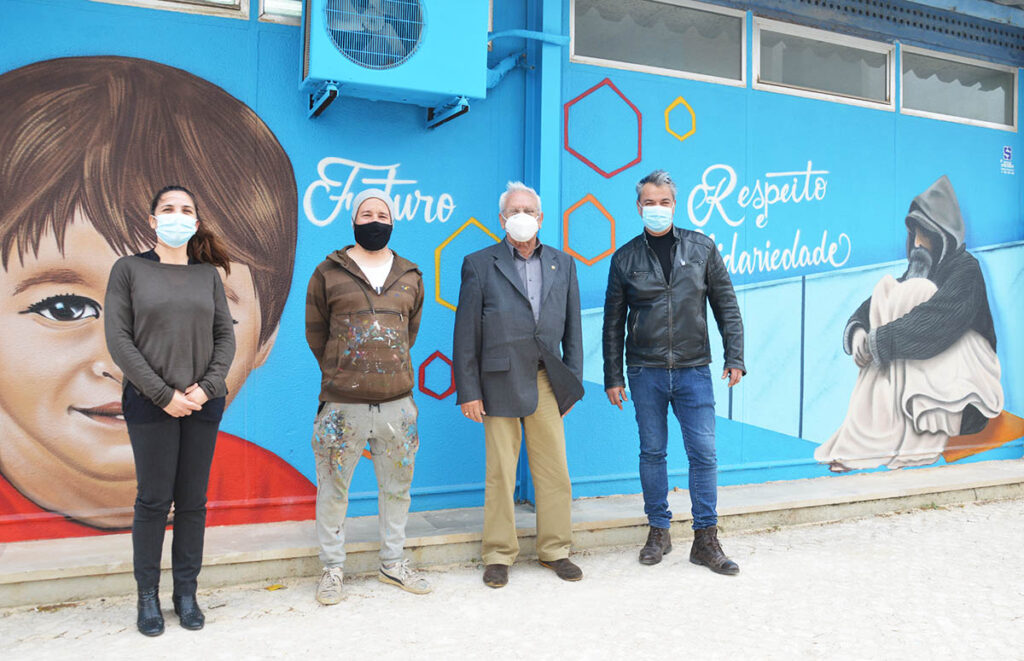
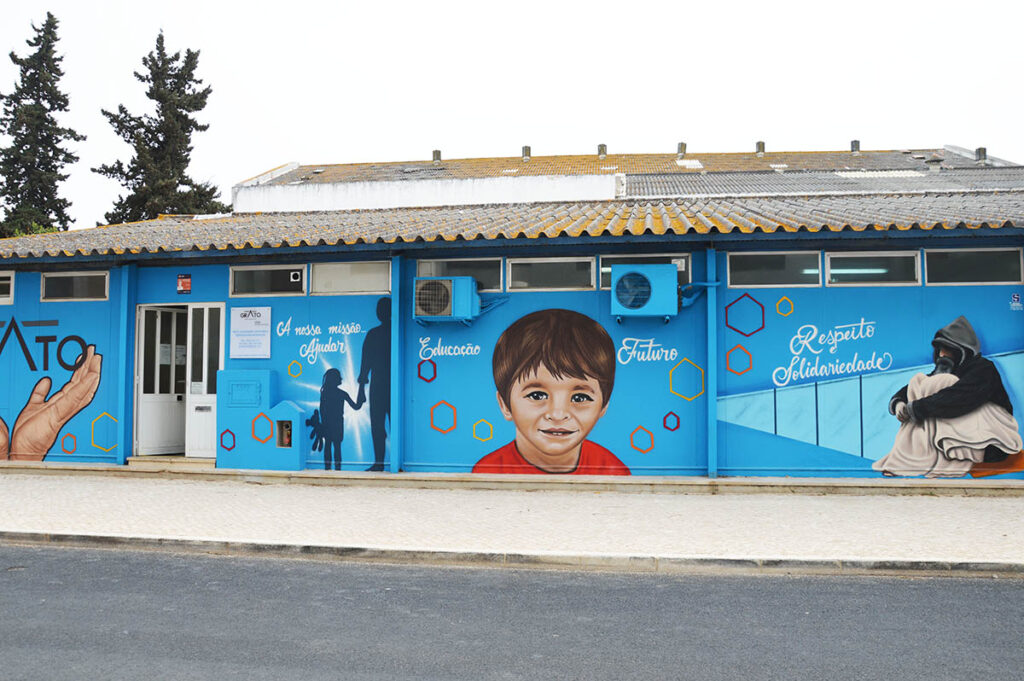
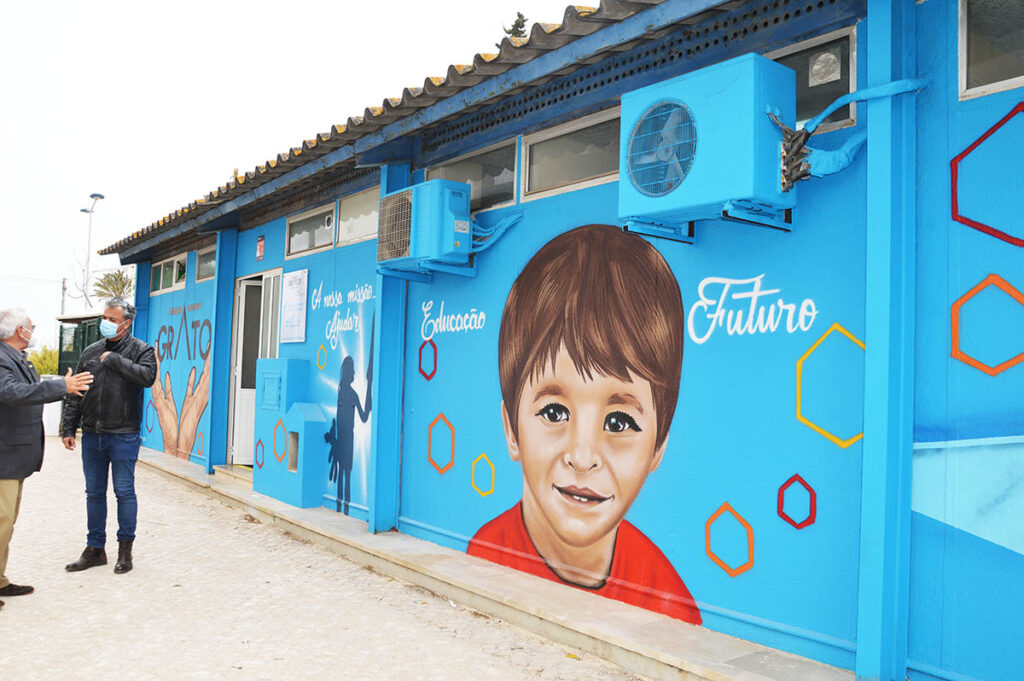
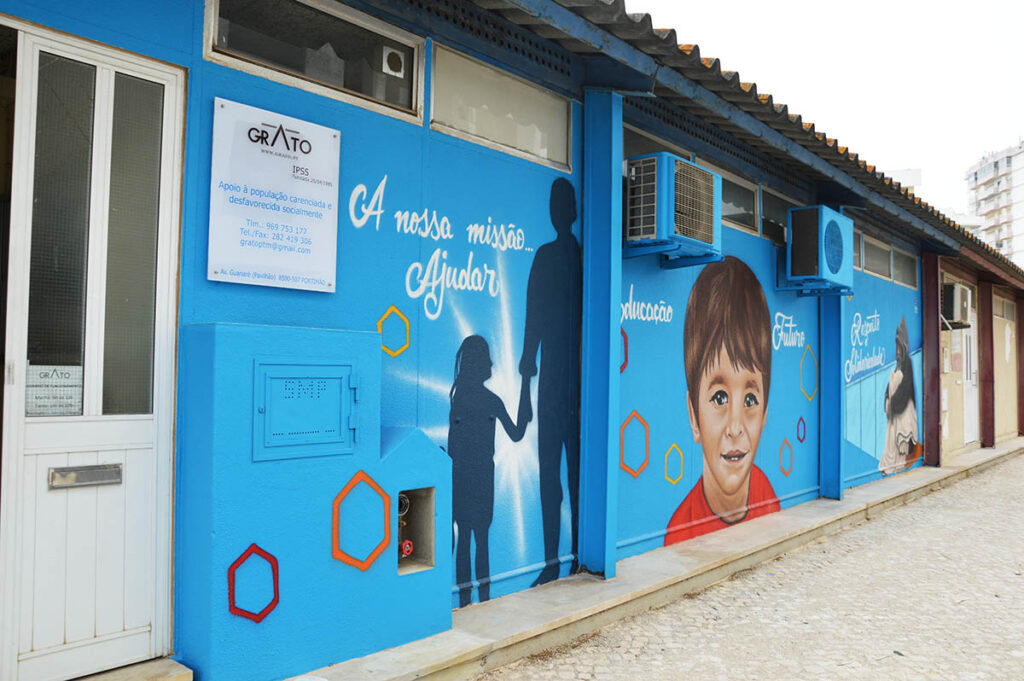
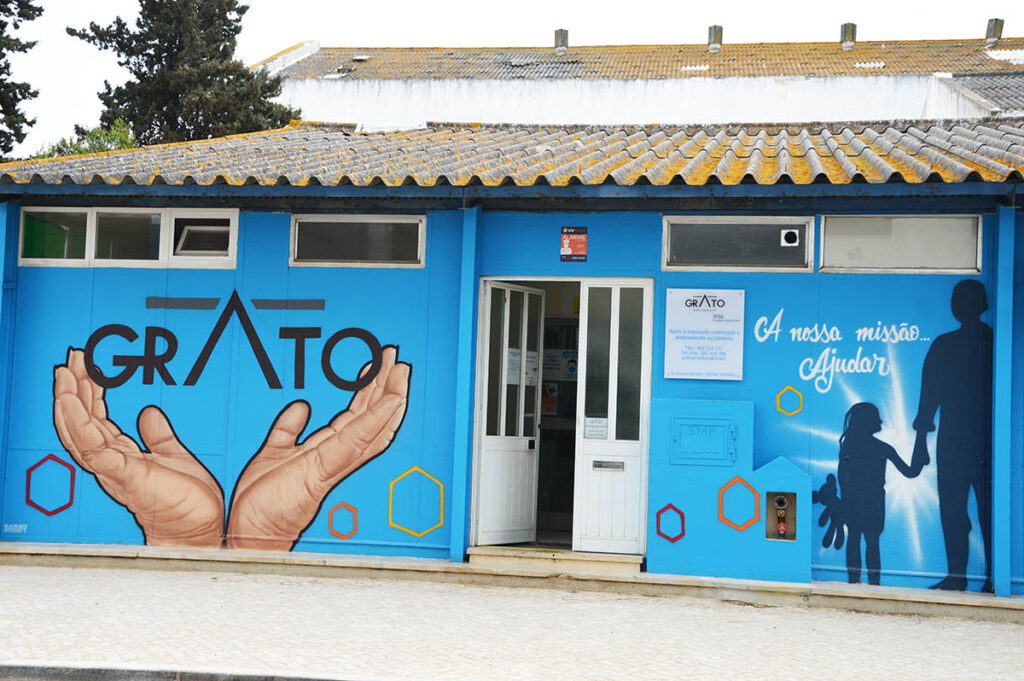
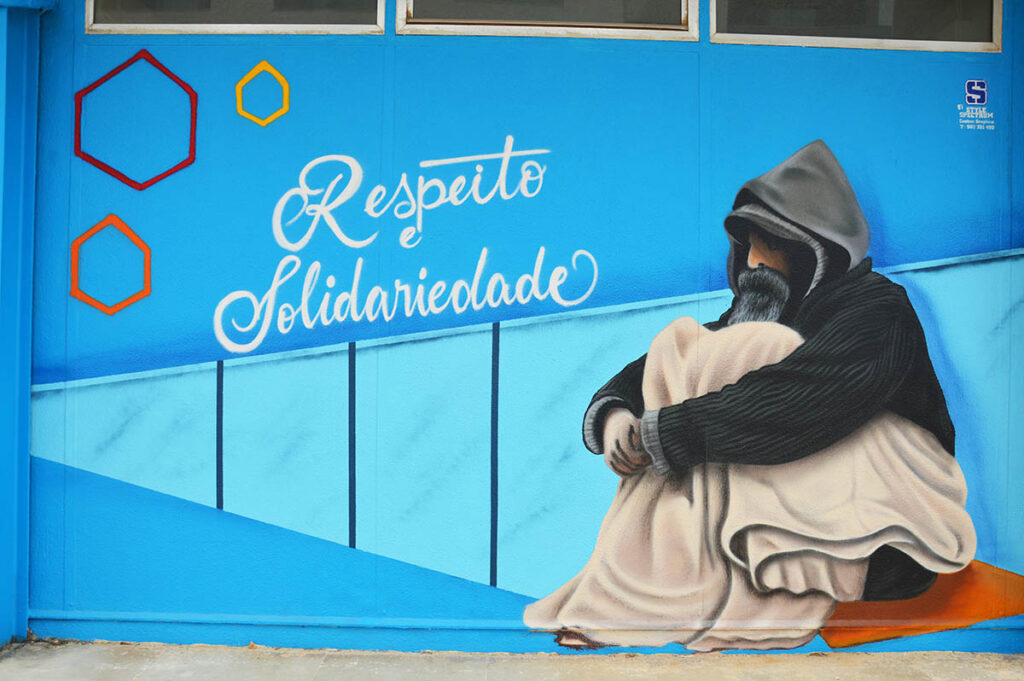
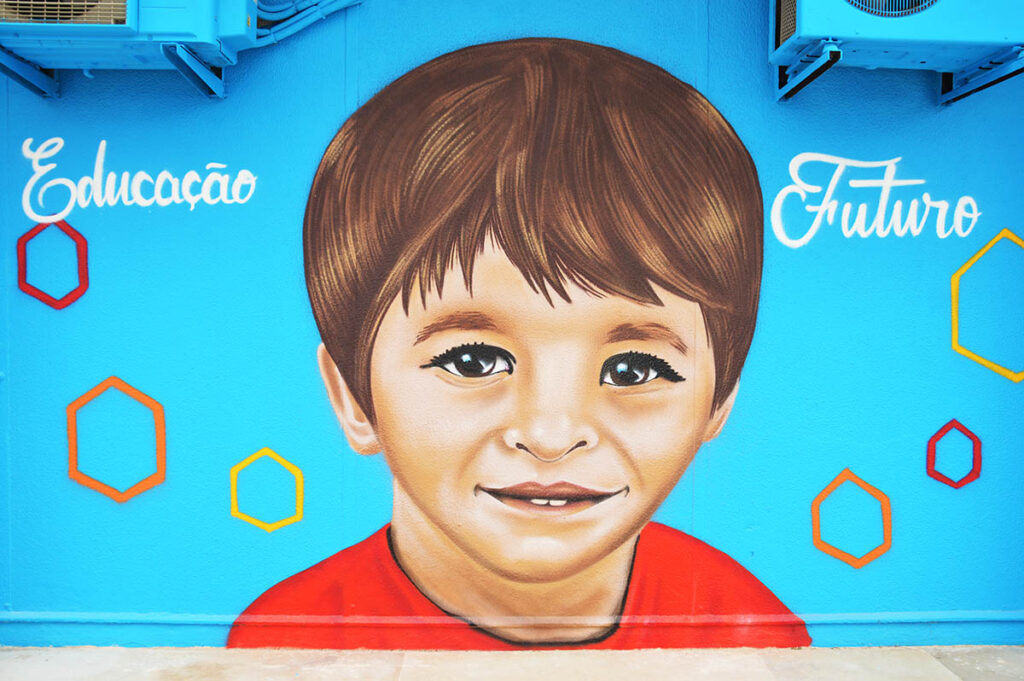
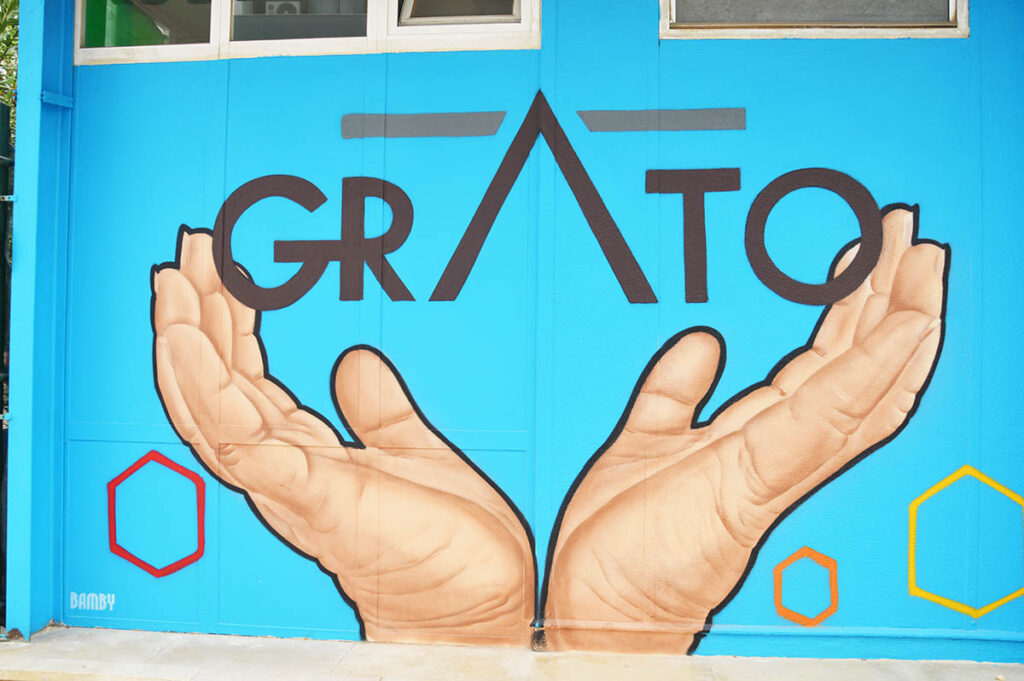
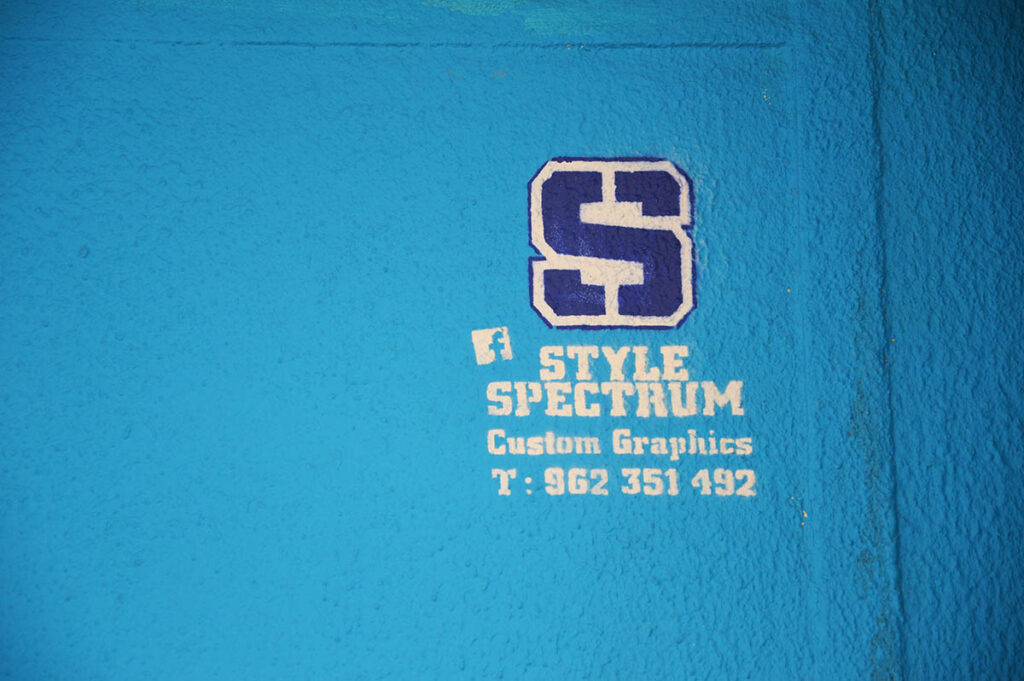



















Comments